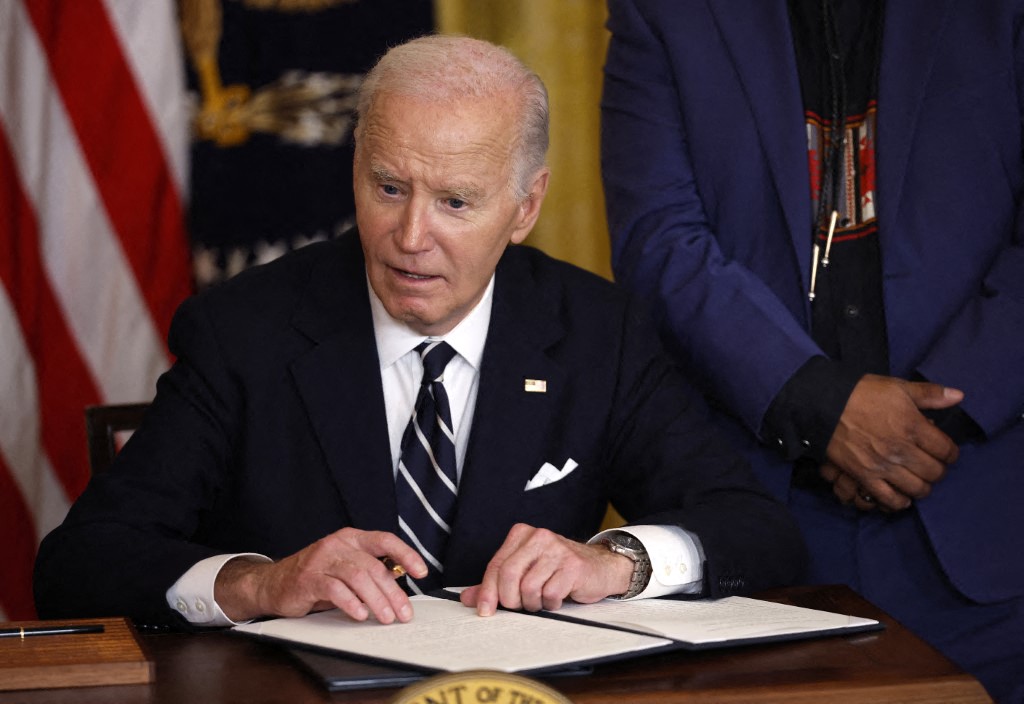Cubans have expressed astonishment after US President Joe Biden removed Cuba from its list of state sponsors of terrorism.
On Tuesday, Cuba announced it would release 553 prisoners in response to Washington’s decision, a move welcomed by the families of jailed protesters.
The White House confirmed that President Biden’s removal of Cuba from the terror list was one of his final official acts before Donald Trump’s inauguration next Monday. However, the change is likely to be reversed by Trump, who reinstated the designation during the closing days of his first term in 2021.
A senior Biden administration official told reporters that an assessment has been conducted, and they found no information supporting Cuba’s designation as a state sponsor of terrorism, He also added that the agreement, facilitated by the Catholic Church, sought the release of “political prisoners in Cuba and individuals detained unjustly.
Families of imprisoned protesters hailed the decision. Among them was Liset Fonseca, mother of 41-year-old Roberto Perez, sentenced to a decade in prison for participating in anti-government demonstrations in July 2021. The protests were spurred by power outages and soaring food prices.
“Every mother wants her child freed from the suffering and hell that is the Cuban prison system. They never should have been imprisoned,” Fonseca told AFP.
The 2021 protests resulted in one death and dozens of injuries, with Havana accusing Washington of instigating the unrest. Official Cuban figures indicate that around 500 people received sentences of up to 25 years for their involvement, though human rights groups and the US embassy place the figure closer to 1,000. Some detainees have since been released after serving their sentences.

Cuba welcomed the US announcement as a positive step but criticised the ongoing economic sanctions imposed since 1962. The Cuban foreign ministry later confirmed that 553 individuals imprisoned for “various offences” would be released.
The Cuban government attributes its dire economic crisis—characterised by severe shortages of fuel, food, medicine, and electricity—to the US blockade. The situation worsened during Trump’s presidency, which saw a tightening of sanctions that had been eased under Barack Obama.
While Biden had pledged changes in US policy towards Cuba before taking office, these plans were delayed following Havana’s crackdown on the 2021 protests. Analysts cite the Covid-19 pandemic, which devastated tourism, and governmental mismanagement as significant contributors to Cuba’s economic struggles. However, Cuban President Miguel Díaz-Canel has labelled US sanctions “genocidal” and warned the nation to brace for “even more challenging conditions” following Trump’s election.
Tuesday’s announcement sparked immediate criticism from Trump allies. Senator Ted Cruz, a Cuban-American member of the Senate Foreign Relations Committee, described the move as “rank appeasement of the Cuban regime.” Similarly, Trump’s nominee for Secretary of State, Senator Marco Rubio—also a Cuban-American and staunch critic of communism—voiced strong opposition.
The White House also confirmed that Biden would waive parts of the Libertad Act, which underpins the US embargo on Cuba, and rescind restrictions on financial transactions with certain Cuban entities. Additionally, Biden annulled Trump-era policies that tightened the embargo.
Colombian President Gustavo Petro and a political party formed by former FARC guerrillas welcomed the decision. Cuba had played a pivotal role as host for peace talks between the Colombian government and FARC from 2012 to 2016, which resulted in the group laying down arms.


